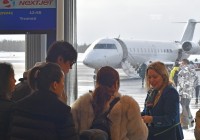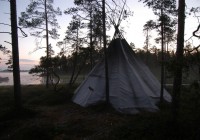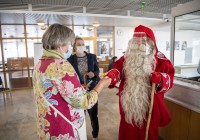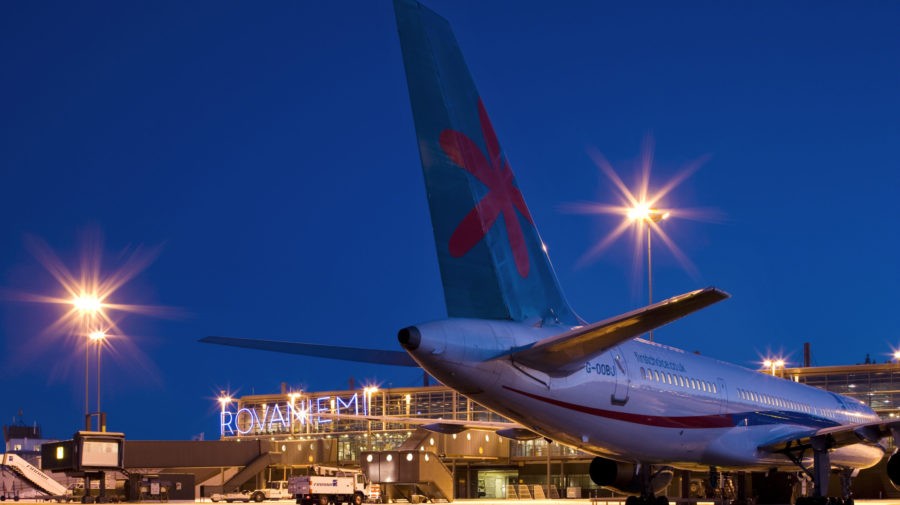
Strong signs of tourism revival in Finland’s north
ADVERTISEMENT
Preliminary statistics indicate that the number of Christmas holiday tourists arriving in Lapland and the Kuusamo region this year is likely to hit pre-Covid levels.
Sian Porter arrived from London with her family to spend Christmas in Kuusamo. Being fully vaccinated, travel now is not a matter of concern.
“We are not afraid of the coronavirus. We are trying to get back to normal, but we are trying to do so safely. You never know,” says Porter.
She is one of many Europeans who are flying to northern Finland on holiday now that charter flights have resumed after the break caused by the coronavirus pandemic.
Preliminary reservations have been made for the arrival of hundreds of charter flights from all over Europe to the northern region of Kuusamo and airports in Finnish Lapland during the Christmas holiday season.
Pent-up demand for travel in Europe is being reflected in the fact that even more charter flights to Kuusamo are now expected during the Christmas period than were seen before the pandemic.
Although the latest coronavirus variant is being diagnosed in Europe, including in Finland, tourists who have already arrived in northern Finland do not seem to be afraid to travel.
Tourists welcome in Kuusamo
All charter flight passengers arriving in Kuusamo are being required to present valid documentation showing that they have received two coronavirus vaccinations.
Being from the UK, Sian Porter and her family members will also have to be tested for the virus within two days of returning to their home country.
More than 80 charter flights will land at Kuusamo Airport alone in December, and there have been no cancellations so far.
Airport operator Finavia has prepared for the possible spread of the new Omicron variant by, among other things, upgrading cleaning services and instating mask requirements.
“The new season is being awaited with great joy and confidence,” says Sari Päivärinta, the manager of Kuusamo Airport.
The number of flights is now slightly higher than in December 2019, but Päivärinta is unwilling predict the future.
“At least at this stage, there have been no cancellations and hopefully there will be none. Hopefully, the travel situation will remain safe this winter,” she adds.
According to Finavia, the booking situation is currently good in Lapland as well. For example, there are 80 planeloads of tourists booked for arrival at Enontekiö.
“We are getting about 90 percent of the charter flights to Rovaniemi, Kittilä and Ivalo seen in 2019,” explains Elina Suominen, Finavia’s communications coordinator.
According to Finavia statistics, in December 2019, a total of 724 charter flights arrived in Rovaniemi, Kittilä, Ivalo, Enontekiö and Kuusamo.
Precautions taken
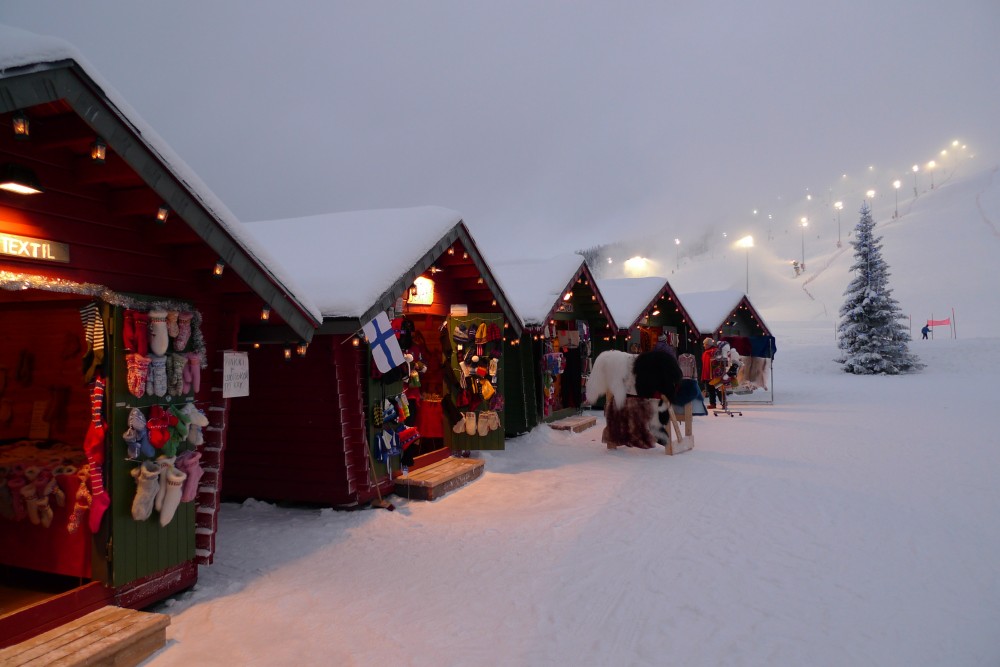
Antti Väänänen, an infectious disease physician at the Lapland Hospital District, is not worried about tourists arriving in the north before and during Christmas.
He believes that the Omicron variant will become more prevalent in Finland in the future, but he does not see it as posing much risk for Christmas holiday tourism.
“Vigilance must be exercised and maintained in order to quickly cut off any chains of infection,” Väänänen says. Even so, it is possible that some tourists may carry the variant.
“The program for charter travellers is usually pretty tight and they usually stay largely in their own bubble. Of course, the staff who work directly with them and thus the rest of the population could be in the danger zone,” Väänänen points out.
In Kuusamo, the health centre has prepared for possible infections among by tourists in cooperation with local tourism operators.
“We have prepared guidelines for businesses in the tourism sector on what to do if a tourist shows symptoms of a coronavirus infection while in Kuusamo. They will pass on this information to visitors,” explains Marika Käkelä, a doctor responsible for infectious control in the area.
According to Jokke Kämäräinen, the CEO of the tourism service Tailored Adventures Rukapalvelu, the situation is business as usual.
“There is no special panic, and I see no reason to panic,” says Kämäräinen.
According to Finnish isolation and quarantine practices, anyone infected with the coronavirus should avoid contact with others until he or she has been asymptomatic for two days, and at least 10 days have passed since the onset of symptoms.
An infectious disease doctor may order quarantine of an asymptomatic person who has been exposed to the coronavirus, usually for 10 days.
Anyone who has received a full series of vaccinations will not normally be quarantined after exposure, but will be advised to have a test if they develop symptoms after exposure.
While both health officials and tourism sector operators are hopeful for a successful holiday season in the north, only time will tell how the new coronavirus situation will impact charter tourism this year.
ADVERTISEMENT
The Barents Observer Newsletter
After confirming you're a real person, you can write your email below and we include you to the subscription list.


